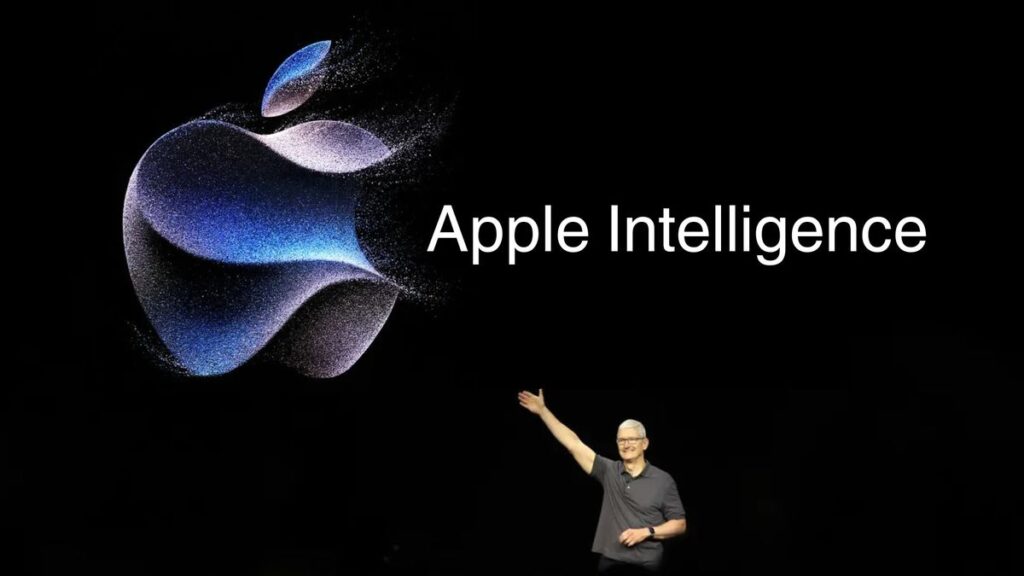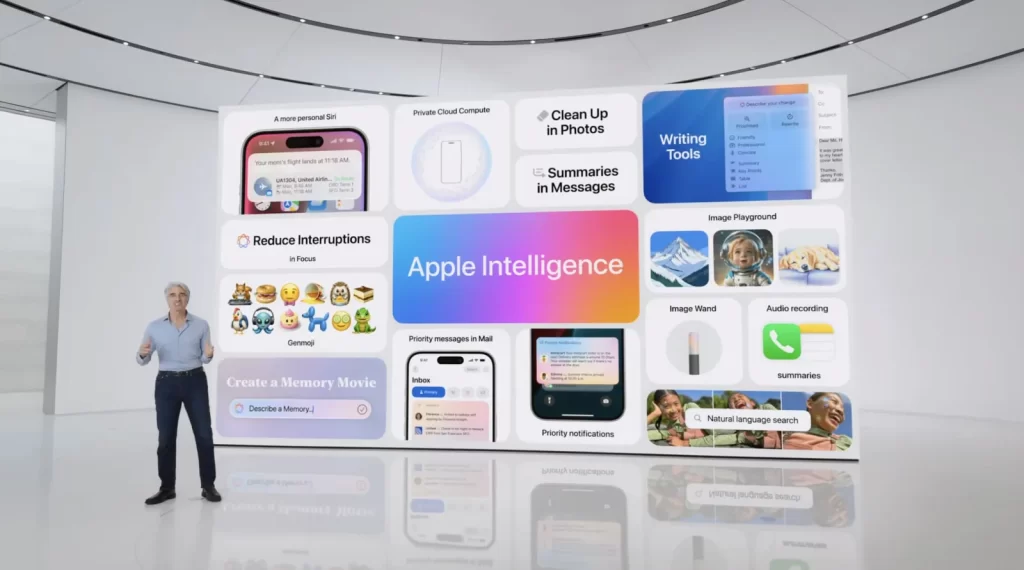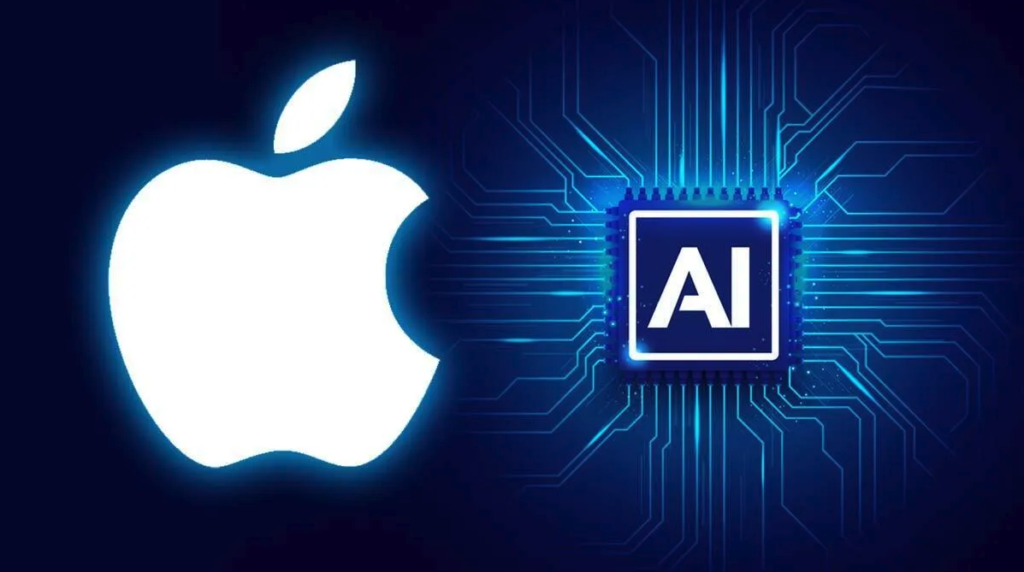As a long-time Apple fan, I always look forward to WWDC with excitement and curiosity. This year was no different. Despite being unable to attend in person, I was glued to the announcements, eager to see Apple’s innovations. I’ve always been fascinated by how Apple pushes the envelope with its products and software, so my interest was piqued when they started talking about their new “personal intelligence” AI.
Each year, Apple’s iPhone lineup receives incremental improvements and features that have been in the market for some years. However, this year’s announcement at WWDC 2024 might finally set a new benchmark for the smartphone industry. Apple’s introduction of “Apple Intelligence” might be poised to revolutionize its products.
Apple Intelligence: The Dawn of a New Era
Apple’s “Apple Intelligence” announcement marks a significant leap in integrating artificial intelligence into its ecosystem. This comprehensive AI strategy introduces a suite of features to enhance the functionality of Apple’s devices, particularly the iPhone. With AI becoming central to everyday tasks, Apple Intelligence is set to redefine the user experience, making devices more intelligent, intuitive, and efficient.
Enhanced Siri: Your Smarter Assistant
One of the standout features of Apple Intelligence is the enhanced Siri. Siri is evolving to become more conversational and context-aware, capable of handling more complex requests. For instance, if you ask Siri, “When does my mom’s flight land?” it can now process this request by synthesizing data from various sources, providing a comprehensive and accurate response.
This advanced capability extends across Apple and third-party apps, allowing Siri to add an address from a message to a contact card. This evolution makes Siri more robust and intuitive, setting it apart from other voice assistants.
Genmoji and Image Playground: Personalized Creativity
Apple Intelligence also introduces “Genmoji,” AI-generated custom emojis that users can create on the fly.
The Image Playground feature allows generative AI to create images in various styles, enhancing user creativity and personalization in communication.
These tools integrate smoothly with Apple’s existing applications, providing users new and innovative ways to express themselves.
Integration with ChatGPT: Comprehensive Responses
In a landmark move, Apple has partnered with OpenAI to bring ChatGPT to its devices. When Siri encounters a request beyond its capabilities, it will prompt users to use ChatGPT. This ensures that users receive accurate and detailed responses, even for complex or obscure questions. Additionally, ChatGPT can assist in system-wide AI writing tools, enhancing productivity apps like Pages.

Privacy and Security: A New Standard
Given the increasing privacy concerns, Apple has emphasized the security aspects of Apple Intelligence. Many features will operate on-device, ensuring that user data remains private. For more complex tasks that require cloud processing, Apple uses “Private Cloud Compute,” powered by Apple Silicon. This approach ensures that user data is not stored or accessible on Apple’s servers. Moreover, Apple will allow independent experts to inspect the code running on its servers to verify privacy claims.
Potential Impact on iPhone Sales
The introduction of Apple Intelligence could significantly boost iPhone sales, particularly for the latest models like the iPhone 15 Pro and 15 Pro Max. Here’s how Apple Intelligence might influence consumer behavior:
Driving Upgrades: Fear of Missing Out
The exclusive availability of these AI features on the latest iPhone models creates a strong incentive for existing users to upgrade. This “fear of missing out” on the newest technology could drive a surge in sales as consumers seek to experience the advanced capabilities of Apple Intelligence firsthand.
Attracting New Users: Cutting-Edge Technology
The advanced AI capabilities and enhanced user experience could attract new customers with cutting-edge technology and robust privacy features. Apple’s focus on integrating AI into everyday tasks makes its devices more appealing to a broader audience, potentially driving increased adoption of newer iPhone models.
Competitive Differentiation: Standing Out
By integrating advanced AI features and emphasizing privacy, Apple differentiates itself from competitors like Google and Microsoft. This could attract users who prioritize these aspects, boosting iPhone sales further. Apple’s seamless hardware and software integration provides a significant advantage over competitors, offering a smoother, more intuitive user experience.

Broader Ecosystem Enhancements
In addition, Apple unveiled a range of comprehensive updates for its diverse lineup of devices.
iPad and macOS Sequoia: Enhanced Features
The new updates to iPadOS and macOS Sequoia bring significant improvements. iPadOS introduces enhanced handwriting features, allowing users to write equations freehand with the Apple Pencil via the new Math Notes app. Meanwhile, macOS Sequoia offers improved continuity between Mac and iPhone with features like iPhone Mirroring, enabling users to drag and drop items quickly between their devices.
Improved Messaging and Photos
iOS 18 introduces better organizational tools for Photos, improved messaging capabilities, and enhanced email management tools. These features make everyday tasks more efficient and enjoyable, enhancing the user experience. The Photos app now includes tools similar to Google’s Magic Eraser, allowing users to easily remove unwanted objects from photos.
WatchOS and VisionOS Updates
The new WatchOS 11 includes features for language translation, pregnancy tracking, and safety check-ins, making the Apple Watch an even more valuable companion. VisionOS 2 updates the Vision Pro headset, including more oversized virtual windows and the ability to create spatial images from standard digital photos, enhancing the immersive experience.
Personal Thoughts
As an iPhone user and someone who tends to be skeptical about AI, I have mixed feelings about the announcement of Apple Intelligence.
On the one hand, it’s exciting to see Apple diving into the AI space with its “personal intelligence” branding.
The idea of having a more intelligent, intuitive assistant that can handle tasks like fetching files shared by my business partner or seamlessly integrating various apps sounds incredibly promising. It’s the kind of productivity boost that can make a real difference in my daily workflow.
However, my skepticism kicks in when it comes to privacy and security. Apple claims to offer private cloud computing, meaning they process data on-device as much as possible, only offloading to the cloud when necessary. While this sounds great in theory, the moment data leaves my device and enters the cloud, it feels vulnerable. Apple has built a reputation for privacy, but I’ll wait to see what the experts say about the actual security of this new system.
Moreover, how much of this AI-driven productivity will genuinely enhance my user experience versus how much will be flashy features that don’t see much use? For instance, the new Siri animation and the ability to type to Siri are neat, but will they transform how I interact with my phone? Talking to Siri about what’s on my screen to trigger actions is intriguing, yet I need to see it in action to judge its effectiveness.
While I appreciate Apple’s commitment to improving its ecosystem and making AI more user-friendly and integrated, my enthusiasm is tempered by a wait-and-see approach. I’ll be closely examining how these features roll out and whether they live up to the hype, but my trust will need to be earned through solid performance and proven security measures.

iPhone Sales Performance: A Retrospective
To understand the potential impact of Apple Intelligence on iPhone sales, it’s essential to examine how iPhone sales have fared in recent years. Apple’s iPhone revenue has fluctuated, reflecting varying market conditions and product reception.
- 2019: In the fiscal year 2019, Apple reported iPhone sales of $142.4 billion, a decline from the previous year’s $164.9 billion. This drop was attributed to market saturation and increased competition from Android manufacturers.
- 2020: Despite the challenges posed by the global pandemic, Apple managed to stabilize its iPhone sales, reporting $137.8 billion in revenue, representing a YoY decline of approximately 3.2%.
- 2021: The iPhone 13 series saw a robust performance, contributing to revenue of $191.1 billion, a significant YoY increase of approximately 38.6%. Features like improved battery life, advanced camera systems, and the introduction of the A15 Bionic chip were well-received by consumers, driving strong sales.
- 2022: Apple’s iPhone revenue in 2022 reached $205.4 billion, reflecting a YoY growth of about 7.5%. The success of the iPhone 14 series, with innovations such as enhanced ProMotion displays, improved computational photography, and increased storage options, appealed to a broad audience.
- 2023: Despite the strong performance in previous years, the second quarter of 2023 saw a decline in iPhone revenue, with Apple reporting $200.5 billion, a slight YoY decrease of approximately 2.4%. This drop suggested weak demand for the current iPhone models released in September. The anticipation for the iPhone 15 series and the subsequent announcement of Apple Intelligence are crucial factors in reversing this trend.
Year-Over-Year (YoY) Revenue Growth Comparison
Examining the YoY revenue growth provides insight into how iPhone sales have trended over the years:
- 2019 to 2020: -3.2%
- 2020 to 2021: +38.6%
- 2021 to 2022: +7.5%
- 2022 to 2023: -2.4%
The significant growth in 2021 highlights the impact of the iPhone 13 series’ new features and improvements. However, the slight decline in 2023 indicates a need for innovation and new features to reignite consumer interest, which Apple Intelligence aims to address.

Market Reaction and Analyst Insights
Despite the promising advancements, Apple’s stock dipped 1.9% on the announcement day. However, analysts remain optimistic about Apple’s AI strategy:
- Evercore ISI’s Amit Daryanani expressed increased confidence in Apple’s AI strategy, noting that restricting Apple Intelligence to newer iPhones could trigger a significant upgrade cycle. He believes that AI can help kick off an iPhone supercycle, driving a surge in sales.
- Wedbush’s Dan Ives described the announcement as a “historical day for Apple,” highlighting the company’s strong positioning in the AI landscape. He views this as a “flex the muscles moment” for Apple, showcasing its capabilities in AI.
In contrast, competitors like Microsoft and Alphabet saw slight gains, reflecting investor confidence in their AI strategies. Nvidia also experienced a boost, underscoring the broader market’s positive outlook on AI developments.
Conclusion
Apple Intelligence represents a significant leap forward for Apple’s devices, particularly the iPhone.
By integrating advanced AI features, enhancing privacy, and improving overall functionality, Apple is set to redefine the user experience.
This strategic move addresses the growing demand for AI capabilities and strengthens Apple’s competitive position, potentially boosting iPhone sales as users seek the latest technological innovation.
By aligning cutting-edge AI features with user-centric privacy measures, Apple is poised to usher in a new era of intelligent, efficient, and secure devices. Apple Intelligence’s rollout could catalyse a new supercycle of iPhone upgrades, driving the company’s growth in an increasingly competitive market.
As we look to the future, it’s clear that Apple Intelligence has the potential to set a new standard in the tech industry.
Apple is well-positioned to lead the AI revolution, focusing on enhancing user experience, maintaining privacy, and integrating seamlessly across its ecosystem.
Whether you’re a tech enthusiast or an everyday user, the advancements brought by Apple Intelligence are set to significantly impact how we interact with our devices, making them more intelligent, more intuitive, and more aligned with our needs.
While the initial market reaction may have been mixed, the long-term prospects for Apple Intelligence and its potential to boost iPhone sales are promising. As the rollout progresses and consumers begin to experience the benefits of these advanced AI features, Apple is likely to see a positive shift in iPhone sales, reaffirming its position as a leader in the tech industry.






